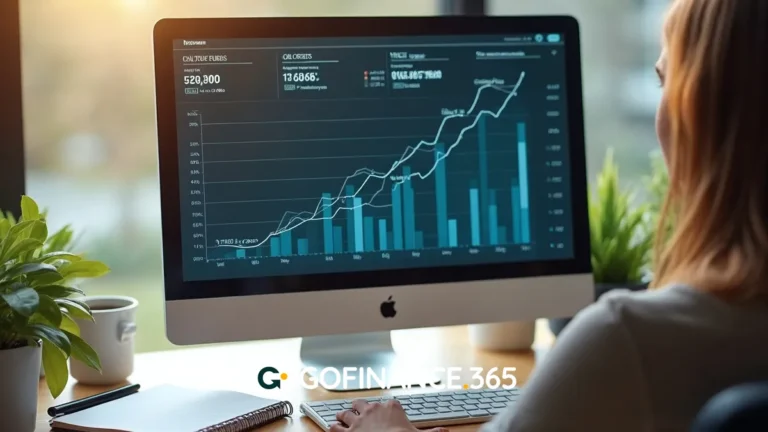Table of contents:
Would you like to gain more control over your money, avoid unnecessary debt, and start building a solid financial future—but don’t know where to begin? Learning about personal finance from zero is the first step to achieving that. You don’t need to be an economist or earn a high income: with the right concepts and good organization, you can completely transform your relationship with money.
In this comprehensive personal finance guide for beginners, you’ll learn what personal finance is, how it affects your everyday life, how to get started from scratch, which fundamentals you need to master, and which common mistakes to avoid. We’ll also answer the most frequently asked questions so you can move forward with clarity and confidence.
Join us in this guide and start building a more secure and financially conscious future today.
What are personal finances and why should you learn about them?
Personal finances encompass the decisions and actions you take to manage your money in day-to-day life. They include everything related to income, spending, saving, investing, and debt. Learning to manage them properly is essential for avoiding financial stress, reaching your goals, and living a more peaceful and organized life.
When you learn about personal finance, you develop the skills to make smarter decisions, prepare for unexpected situations, and plan for the future with greater confidence.
Personal finance isn’t just about numbers—it’s also about behavior, habits, and setting meaningful goals. Through knowledge and consistent action, you can move from financial disorder to stability, steady saving, and long-term financial growth. And it all begins with the decision to learn.
The importance of controlling your personal finances
Having control over your finances allows you to make informed decisions instead of acting on impulse. By understanding your true income, fixed and variable expenses, and spending habits, you can manage your money more strategically.
Some key benefits of controlling your finances include:
- Knowing exactly how much you can spend without going into debt
- Creating a clear plan for your goals (travel, education, starting a business)
- Sleeping better knowing you’re prepared for the unexpected
- Breaking free from the paycheck-to-paycheck cycle
How personal finances impact your daily life
Your finances influence nearly every part of your daily routine—from the supermarket you shop at to whether you can afford a vacation or cover a medical emergency. When finances aren’t well managed, they cause stress, limit your options, and affect your emotional well-being.
But when you’re in control, your finances give you freedom and opportunities. You can build savings, invest in what matters most, and even boost your self-esteem by seeing yourself make real progress toward your goals. Money doesn’t have to be a problem—when managed well, it becomes a powerful tool for living a better life.
First steps to understanding personal finance from zero
Starting from zero with personal finance might seem intimidating, but it’s far simpler than it appears. You don’t need to change everything at once—just take small, consistent steps. The first step is to understand your current situation, then define your goals, and finally implement basic tools like budgeting.
The aim is to build a strong foundation. As you gain experience, you’ll feel more confident making financial decisions, avoiding common pitfalls, and taking control. The key is to start with what you have—right now.
Assess your current financial situation
Before making changes, you need to understand where you stand financially. Start by reviewing:
- Your monthly income (salary, freelance work, rental income)
- Your fixed and variable expenses
- Any current debts (amounts, interest rates, payment terms)
- Your savings and available assets
You can use a spreadsheet, budgeting app, or even pen and paper. What matters is having a clear picture. This initial assessment is like a roadmap: without it, you won’t know which direction to take or what needs improvement.
Set clear and achievable financial goals
Setting goals gives your efforts purpose. Be sure to create goals that are specific, measurable, and time-bound.
Define short-term (1–3 months), medium-term (6–12 months), and long-term (over a year) goals. This structure keeps you motivated with small wins while steadily working toward bigger achievements.
The importance of creating a basic budget
A budget is the heart of your personal financial system. It helps you allocate your income to different areas—needs, savings, entertainment, and more.
A basic budget should include:
- Net income
- Fixed expenses (e.g., rent, utilities, transportation)
- Variable expenses (e.g., groceries, leisure)
- Savings and financial goals
Review and adjust your budget every month. Think of it as a living document—it’s not meant to be rigid, but rather a flexible guide that adapts to your lifestyle and needs.
The fundamental pillars of personal finance
All strong financial health is built on five essential pillars: income, expenses, savings, investment, and credit. Understanding how each of these works—and how they interconnect—allows you to build a balanced, resilient, and growing personal economy.
These pillars don’t operate in isolation: poorly managed spending can hinder your ability to save; extra income without a clear goal can easily vanish. That’s why it’s crucial to approach each pillar with strategy and intention.
Income – How to increase your sources of income
Your income is the foundation of your finances. While reducing expenses is important, the potential for saving is often limited unless your income increases.
Some ways to boost your income include:
- Freelancing or contract work
- Selling digital products or services
- Monetizing your skills (teaching, consulting)
- Passive income sources (dividends, rental properties)
Always aim to diversify your income. Relying solely on a single source of income is risky—especially in times of crisis or unexpected events.
Expenses – Identify and reduce unnecessary spending
Cutting expenses doesn’t mean depriving yourself—it means eliminating what doesn’t truly add value to your life. Start by tracking all your expenses for one month.
Then, categorize them into:
- Essential (e.g., food, housing, healthcare)
- Adjustable necessities (e.g., transportation, utilities)
- Non-essential/discretionary (e.g., subscriptions, impulse buys)
Eliminate what’s unnecessary and renegotiate what’s flexible. Reinvest every dollar you save into your future—whether through savings, education, or investments.
Savings – How and why to start saving today
Saving isn’t about what’s left over—it’s a priority. Start with what you can: 5%, 10%… The most important thing is to build the habit. Set up an automatic transfer on payday and treat that money as untouchable.
Saving gives you security, freedom, and a buffer against life’s surprises.
Investing – Basic concepts for beginners
Investing is the next step toward making your money work for you. While saving protects your capital, investing aims to grow it. Of course, it carries risks and requires education.
Key terms to understand:
- Return – how much you earn
- Risk – the possibility of losing money
- Liquidity – how easily you can access your money
Start with simple, beginner-friendly options like index funds or fixed-term deposits. And remember: never invest in something you don’t fully understand.
Credit and debt – How to manage them responsibly
Credit isn’t inherently bad—it becomes a problem when used without control. Used wisely, credit can help you pursue education, invest, or handle emergencies.
Key tips:
- Avoid using credit for everyday consumer spending
- Don’t spend more than 30% of your income on debt payments
- Always check the APR and associated fees before accepting credit
- Pay on time—and if possible, pay more than the minimum
- Lower interest means greater financial freedom in the long run.
Understand the fundamentals of personal finance and manage your money successfully
Learning about personal finance is a transformative decision. No matter where you’re starting from, with clear information, simple habits, and realistic goals, you can improve your finances, reduce financial stress, and build a more secure future.
Apply what you’ve learned today. Begin with small changes, and you’ll quickly see how your relationship with money becomes more strategic, confident, and positive. Your financial well-being is truly in your hands.
Frequently asked questions about how to start managing and organizing your personal finances
When you decide to improve your personal finances, it’s natural to have a lot of questions. Here are some of the most common ones, answered clearly to help you move forward with confidence.
Do I Need a Lot of Money to Start Managing My Finances?
No. Financial literacy isn’t about how much you earn—it’s about how you manage what you have. Even with a modest income, you can build a budget, start an emergency fund, or learn to invest. What matters most is developing smart habits from the beginning.
What Are the Best Free Resources for Learning About Personal Finance?
There are many excellent resources available at no cost, including:
– Specialized blogs (like GoFinance365)
– Educational YouTube channels
– Financial literacy podcasts
The key is to stay curious, keep learning, and apply what you discover to your own financial life.















